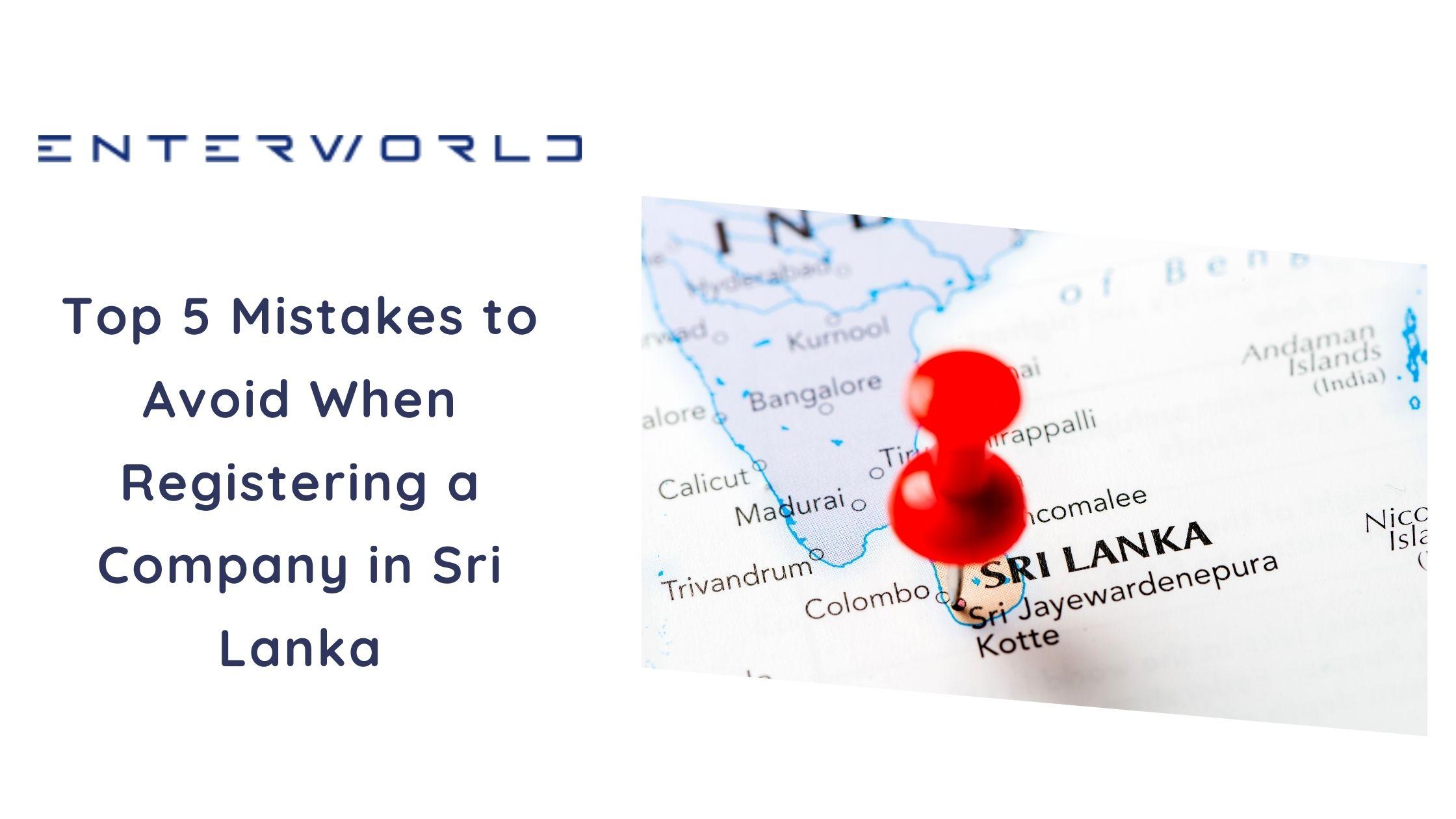Top 5 Mistakes to Avoid When Registering a Company in Sri Lanka

Sri Lanka is fast becoming a hub for startups, small businesses, and international ventures looking to enter South Asia. With its strategic location, educated workforce, and growing digital economy, the country offers solid potential for entrepreneurs.
But registering a company in Sri Lanka is not without its challenges. While the process may seem straightforward on paper, there are key legal, procedural, and practical pitfalls that can derail your plans if you're not careful.
Here are the top 5 mistakes to avoid when pursuing company registration in Sri Lanka, and how to get it right from day one.
1. Choosing the Wrong Legal Structure
Many first-time founders rush into the process without fully understanding the implications of each business structure.
The most common legal entities in Sri Lanka include:
-
Sole Proprietorship
-
Private Limited Company (PVT LTD)
-
Public Limited Company
-
Partnerships
For most entrepreneurs and startups, a Private Limited Company offers the best combination of legal protection, credibility, and scalability. However, each structure has its own tax implications, compliance requirements, and setup costs.
Mistake: Registering as a sole proprietorship to avoid paperwork,only to face limitations later with fundraising, contracts, and liability.
Tip: Think long-term. Choose the structure that aligns with your growth plans and investment needs.
2. Incomplete or Incorrect Documentation
Submitting incomplete or incorrect documentation is one of the most common reasons for delays in the registration process.
To register a Private Limited Company in Sri Lanka, you typically need:
-
A unique company name (approved by the Registrar of Companies)
-
Articles of Association
-
Details of directors and shareholders
-
Company secretary appointment
-
Registered address
-
Form 1, 18, and 19 (standard ROC forms)
Mistake: Copy-pasting documents or using outdated templates that don’t align with Sri Lanka’s Companies Act.
Tip: Double-check document requirements with a legal or registration expert familiar with Sri Lankan law. Don’t rely on generic templates from the internet.
3. Ignoring the Importance of a Registered Address
Your company must have a registered local address in Sri Lanka, which is used for all legal correspondence. Many founders list temporary or informal addresses without considering long-term practicality.
Mistake: Using a personal residence or short-term rented space as the official registered address, then having to update it repeatedly.
Tip: Secure a stable, long-term commercial address before you submit your application. If you're a foreigner, consider using a local business center or legal firm for address hosting.
4. Underestimating Local Compliance Requirements
Incorporation is just the beginning. Every Sri Lankan company must meet ongoing compliance obligations such as:
-
Filing annual returns with the Registrar of Companies
-
Maintaining statutory registers
-
Keeping financial records and preparing audited accounts (where applicable)
-
Renewing business registration and licenses
-
Filing tax returns with the Inland Revenue Department
Mistake: Assuming you can set it and forget it. Many businesses get penalized for missing annual filings or failing to maintain proper records.
Tip: Engage a local accountant or company secretary from the start. Compliance is not just legal,it affects your credibility and future fundraising.
5. Overlooking the Need for Director and Shareholder Clarity
Sri Lanka requires a minimum of one director and two shareholders for a Private Limited Company. If you're working with partners, unclear ownership structures or handshake agreements can lead to major disputes later.
Mistake: Registering shares in the wrong names, or failing to document ownership percentages and decision-making rights.
Tip: Get clarity on equity distribution and roles before you register. Use formal shareholder agreements and maintain proper records from day one.
Conclusion
Sri Lanka offers a compelling destination for starting a business, but the process of company registration in Sri Lanka demands careful planning. From selecting the right structure and preparing accurate documents to ensuring compliance and clarity with your partners, each step plays a critical role in setting your business up for long-term success.
Avoid these five common mistakes and you’ll not only save time and money, but also build a stronger foundation for growth in one of South Asia’s most promising markets.
- Vibnix Blog
- Politics
- News
- Liberia News
- Entertainment
- Technology
- Formazione
- Art
- Causes
- Crafts
- Dance
- Drinks
- Film
- Fitness
- Food
- Giochi
- Gardening
- Health
- Home
- Literature
- Music
- Networking
- Altre informazioni
- Party
- Religion
- Shopping
- Sports
- Theater
- Wellness



